Related Research Articles

The Democrats of the Left was a social-democratic political party in Italy. Positioned on the centre-left, the DS, successor of the Democratic Party of the Left (PDS) and the Italian Communist Party, was formed in 1998 upon the merger of the PDS with several minor parties. A member of The Olive Tree coalition, the DS was successively led by Massimo D'Alema, Walter Veltroni, and Piero Fassino, and merged with Democracy is Freedom – The Daisy and a number of minor centre-left parties to form the Democratic Party in October 2007.

The Italian Socialist Party was a social-democratic and democratic-socialist political party in Italy, whose history stretched for longer than a century, making it one of the longest-living parties of the country. Founded in Genoa in 1892, the PSI was from the beginning a big tent of Italy's political left and socialism, ranging from the revolutionary socialism of Andrea Costa to the Marxist-inspired reformist socialism of Filippo Turati and the anarchism of Anna Kuliscioff. Under Turati's leadership, the party was a frequent ally of the Italian Republican Party and the Italian Radical Party at the parliamentary level, while lately entering in dialogue with the remnants of the Historical Left and the Liberal Union during Giovanni Giolitti's governments to ensure representation for the labour movement and the working class. In the 1900s and 1910s, the PSI achieved significant electoral success, becoming Italy's first party in 1919 and during the country's Biennio Rosso in 1921, when it was victim of violent paramilitary activities from the far right, and was not able to move the country in the revolutionary direction it wanted.
The Social Christians are a Christian social-democratic faction within the Democratic Party, a political party in Italy. Before that, they were a party (1993–1998) and a faction of the Democrats of the Left (1998–2007).

The Italian Socialists were a minor social-democratic political party in Italy active from 1994 to 1998. The party was the legal successor of the Italian Socialist Party (PSI), following its dissolution by the 47th Party Congress due to the severe financial crisis following the Tangentopoli scandal. A minoritarian group of the congress, who proposed an autonomist and centrist solution against the PSI dissolution, instead founded the Reformist Socialist Party.
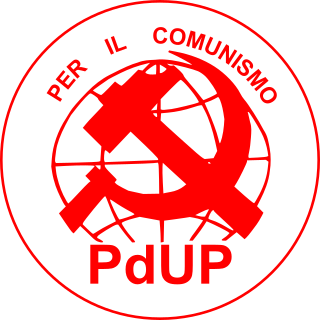
The Proletarian Unity Party was a far-left political party in Italy.

The Democratic Party is a social-democratic political party in Italy. The party's secretary is Elly Schlein, elected in the 2023 leadership election, while the party's president is Stefano Bonaccini.

Valdo Spini is an Italian politician and author.
The Labour Federation was a social-democratic political party in Italy. The party's leader and founder was Valdo Spini.
The Association for the Rose in the Fist was a social-democratic political association in Italy. It was the so-called "third component" of the Rose in the Fist (RnP), a political alliance composed mainly of the Italian Democratic Socialists (SDI), a social-democratic party, and the Italian Radicals (Rad), a liberal movement.
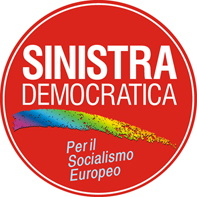
Democratic Left, whose complete name was Democratic Left. For European Socialism, was a democratic-socialist political party in Italy.
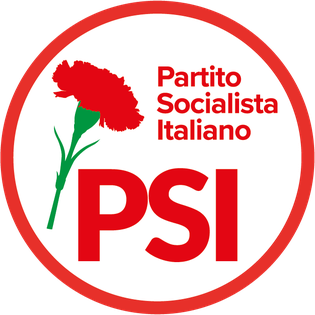
The Italian Socialist Party is a social-democratic political party in Italy. The party was founded in 2007–2008 by the merger of the following social-democratic parties and groups: Enrico Boselli's Italian Democratic Socialists, the faction of the New Italian Socialist Party led by Gianni De Michelis, The Italian Socialists of Bobo Craxi, Democracy and Socialism of Gavino Angius, the Association for the Rose in the Fist of Lanfranco Turci, Socialism is Freedom of Rino Formica and some other minor organisations. Until October 2009, the party was known as Socialist Party.

360 Association is a centrist association connected to the Democratic Party (PD), a political party in Italy. It is led by Enrico Letta and that is why its members are often called Lettiani.
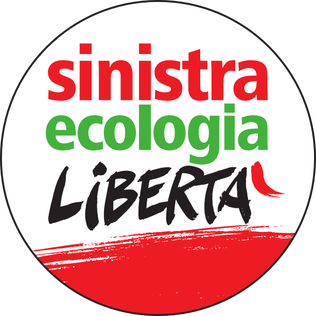
Left Ecology Freedom was a democratic socialist political party in Italy whose bulk was formed by former members of the Communist Refoundation Party.
Socialism 2000 was a democratic socialist political association in Italy led by Cesare Salvi.
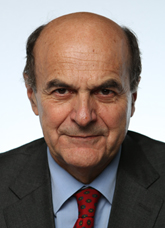
The 2009 Democratic Party leadership election was held in July–November 2009, following the resignation of Walter Veltroni in February 2009, after 16 months as secretary of the Democratic Party (PD), a political party in Italy.

The 2012 Italian centre-left primary election determined the leader of the coalition Italy. Common Good, who will stand as common candidate for the office of Prime Minister in the subsequent general election, which took place on 24–25 February 2013. It was won with 61% of the votes by Pier Luigi Bersani, who defeated Matteo Renzi in the run-off.

Remake Italy, whose members were known as Young Turks, was a social-democratic and, to some extent, democratic-socialist faction within the Democratic Party (PD), a political party in Italy.
Socialists and Democrats is a social-democratic faction of the Democratic Party (PD), a centre-left political party in Italy.

Article One, officially Article 1 – Democratic and Progressive Movement, was a social-democratic political party in Italy.
References
- ↑ "Democrazia e Socialismo - PD: ANGIUS, RICOSTRUIRE CENTROSINISTRA RIFORMISTA". Archived from the original on 2011-07-23. Retrieved 2008-09-29.
- ↑ Archived July 16, 2011, at the Wayback Machine
- ↑ "Democrazia e Socialismo - Angius: Guardo al PD, la costituente socialista ? Fallita". Archived from the original on 2011-07-23. Retrieved 2008-10-13.
- ↑ "aprileonline.info". aprileonline.info. Archived from the original on 2012-12-18. Retrieved 2014-07-17.
- ↑ "L'Opinione delle Libert?". Archived from the original on 2008-10-09. Retrieved 2008-10-17.
- ↑ "Democrazia e Socialismo - Angius: "Sabato 18 incontro nazionale a Roma"". Archived from the original on 2011-07-23. Retrieved 2008-10-13.
- ↑ "Democrazia e Socialismo - PD: ANGIUS, ?SPERO CHE BERSANI RIESCA NELL?IMPRESA.?". Archived from the original on 2011-07-23. Retrieved 2010-12-14.